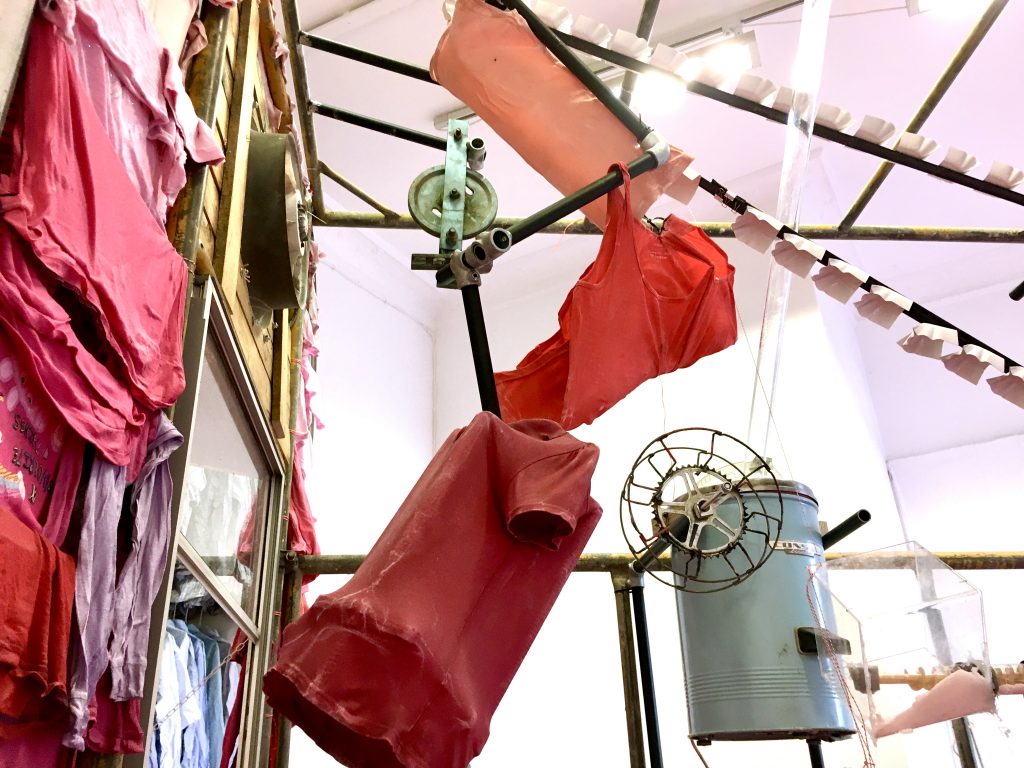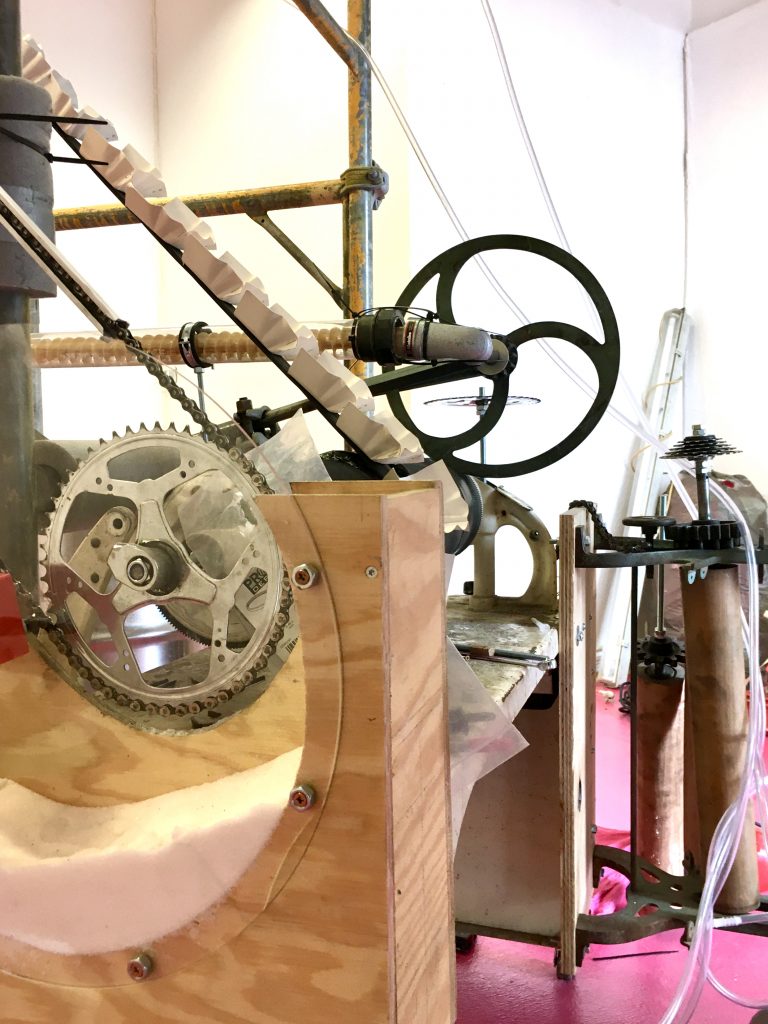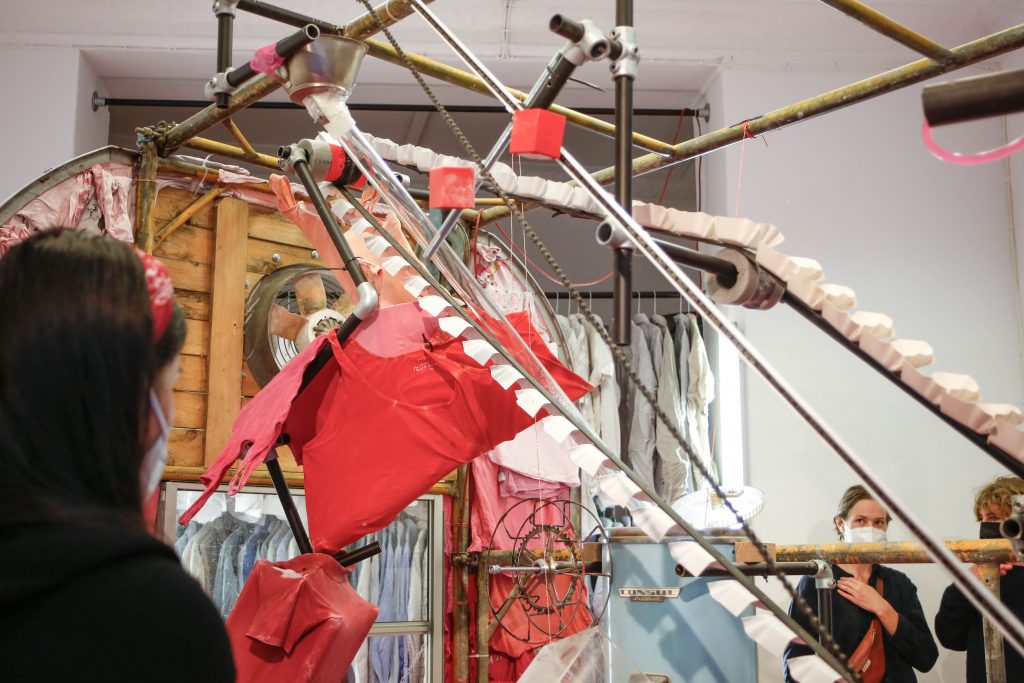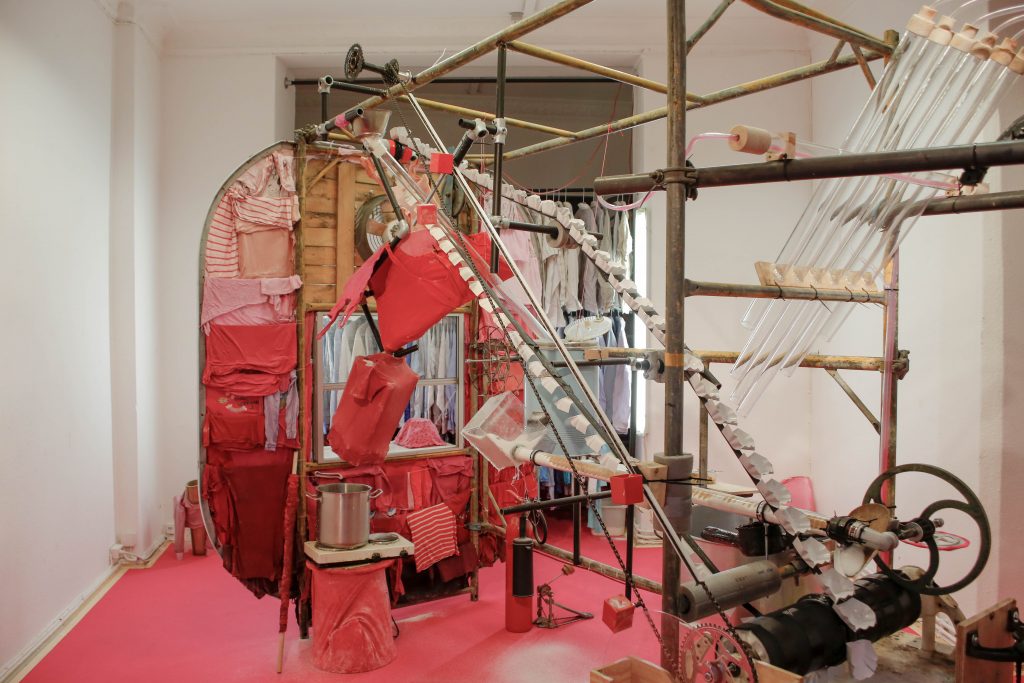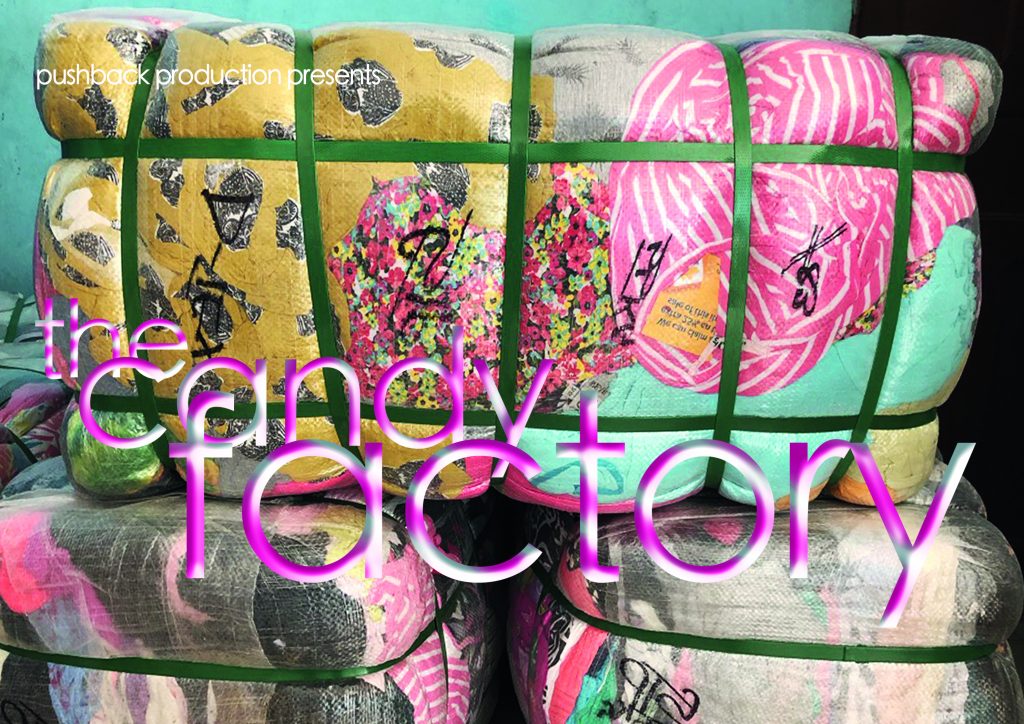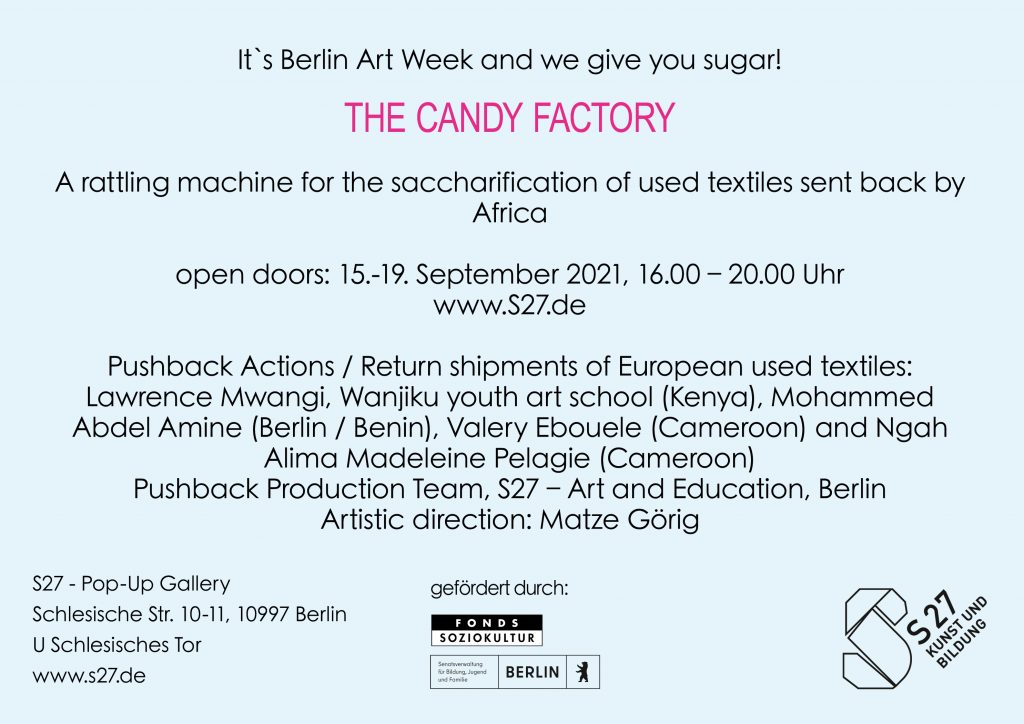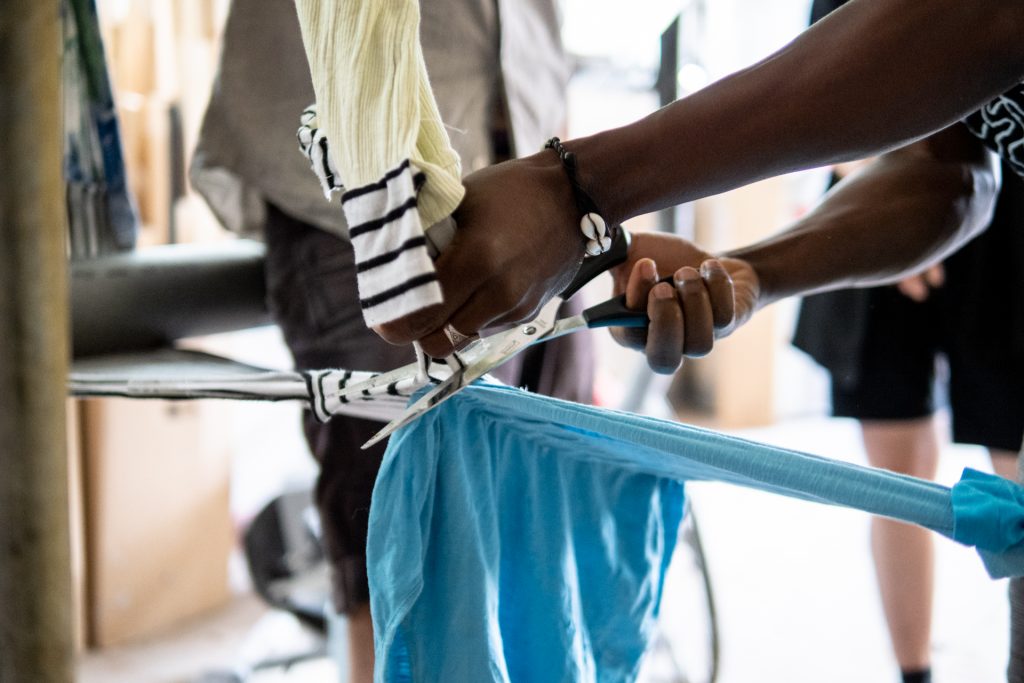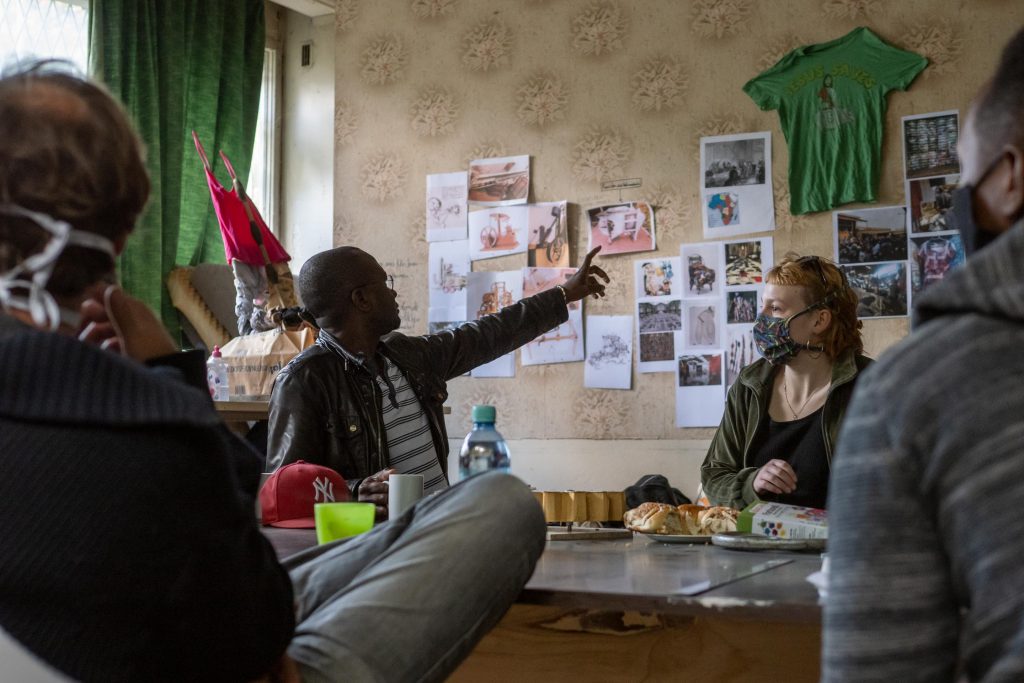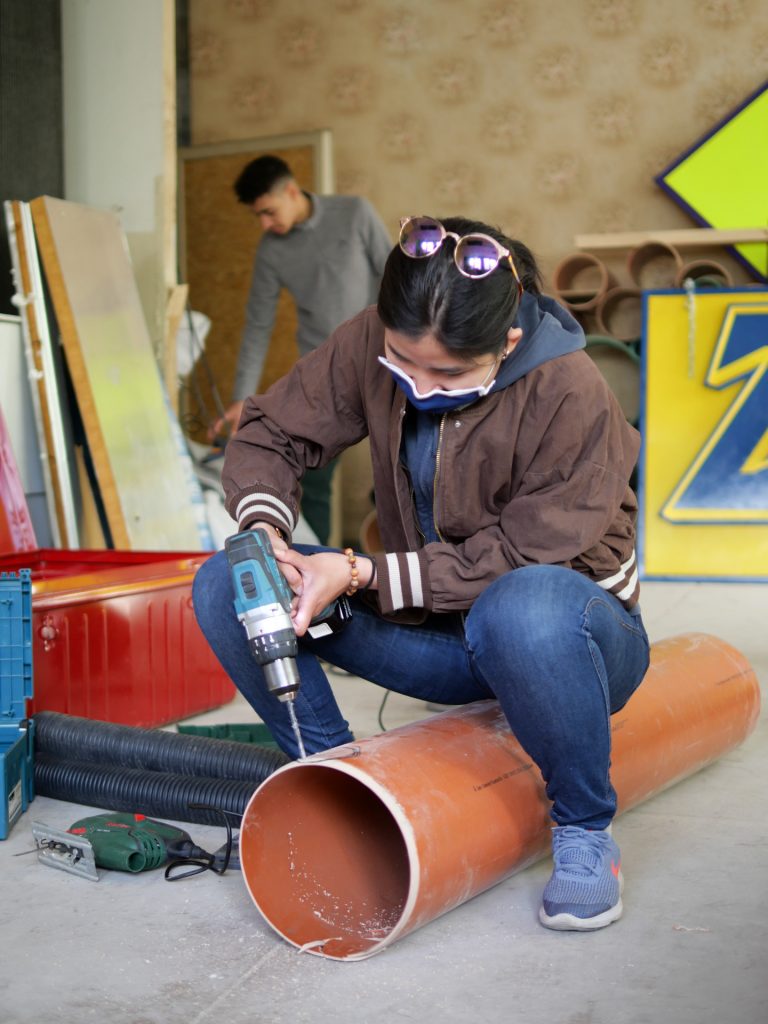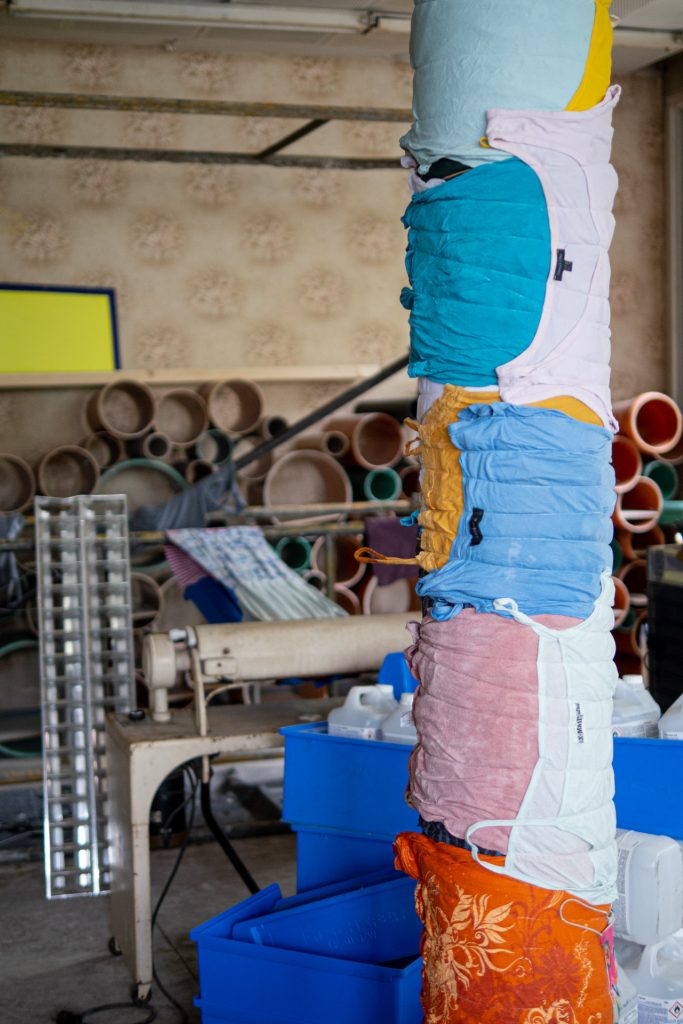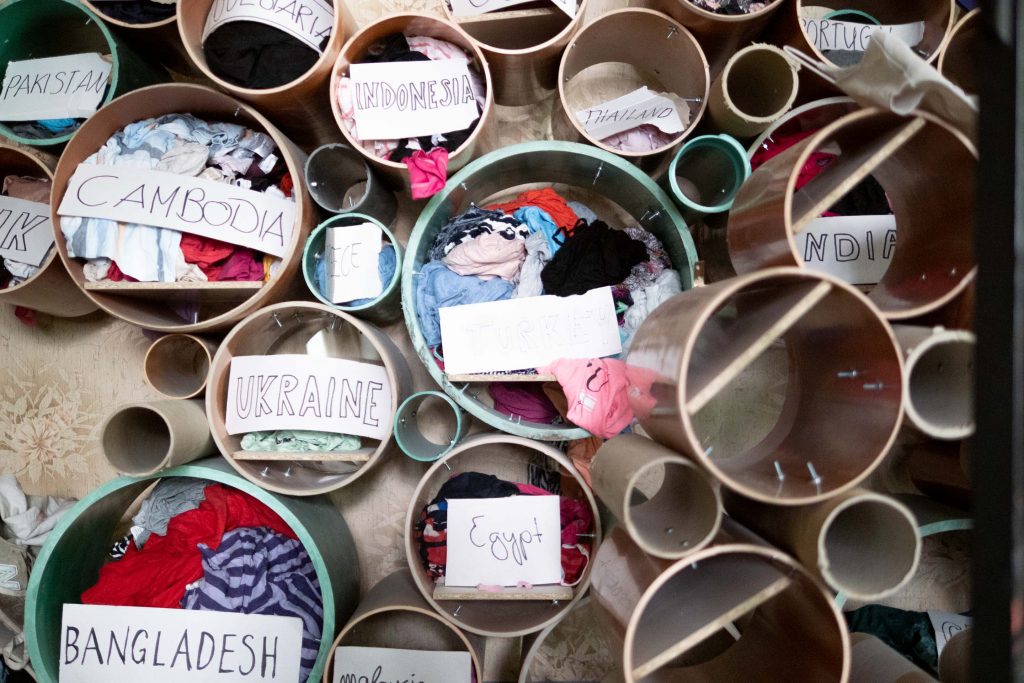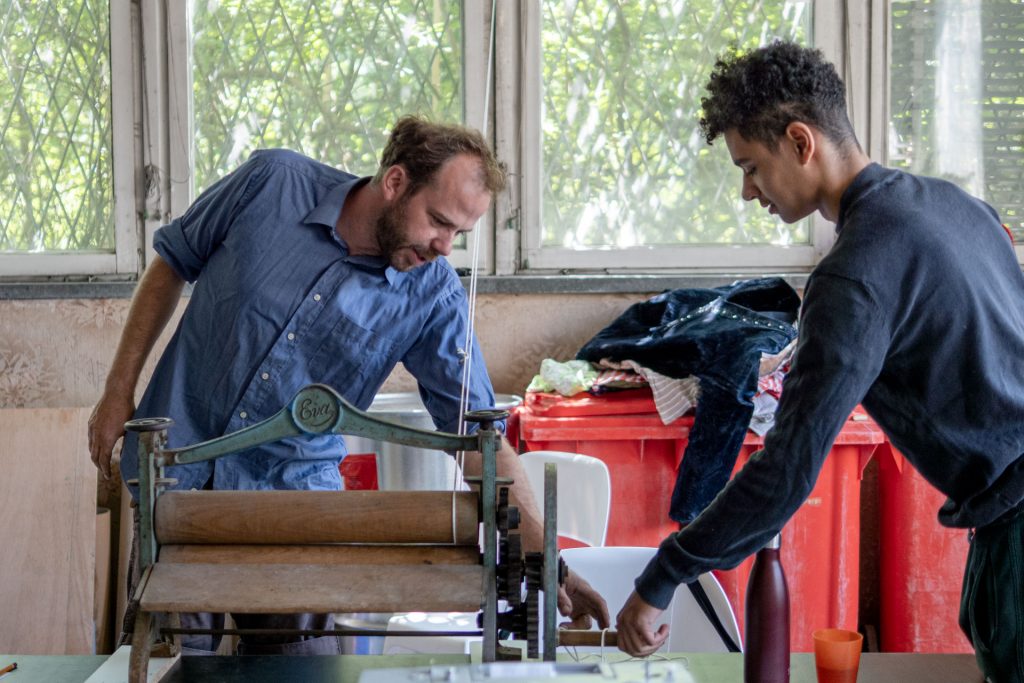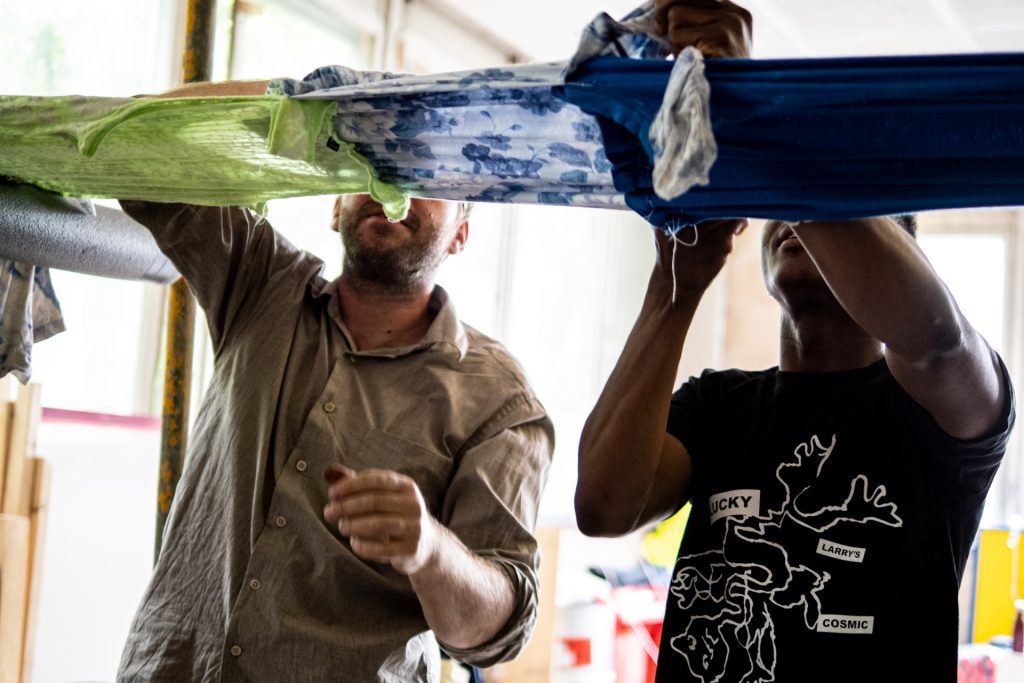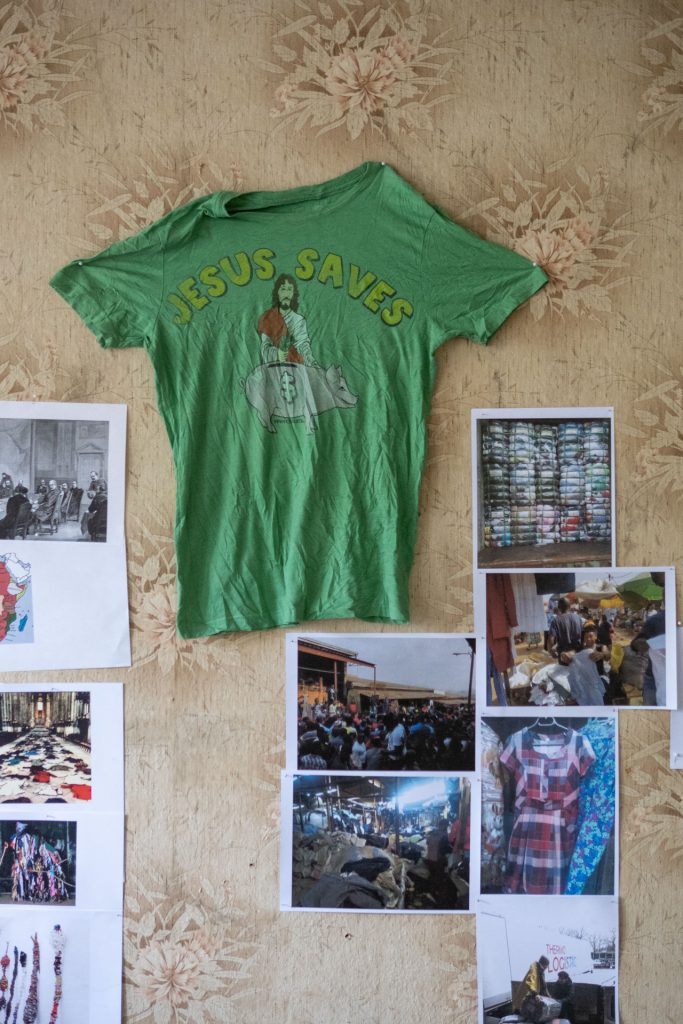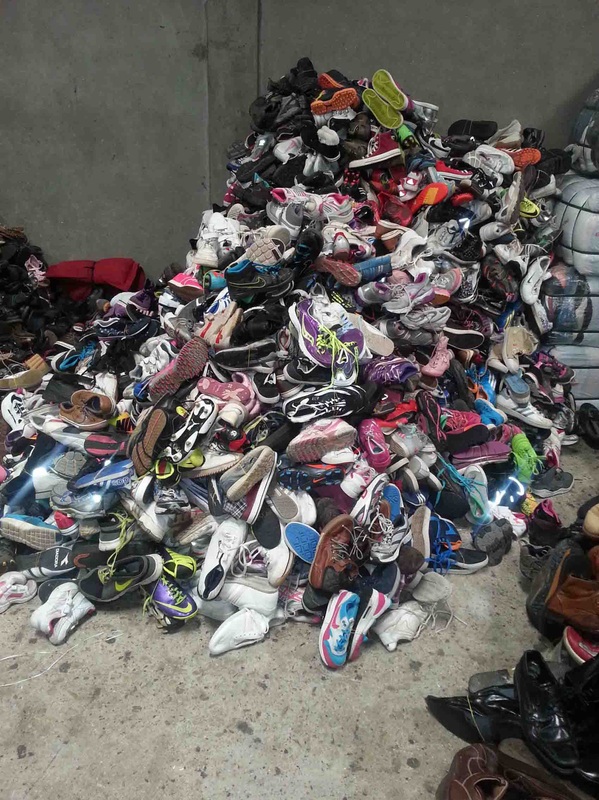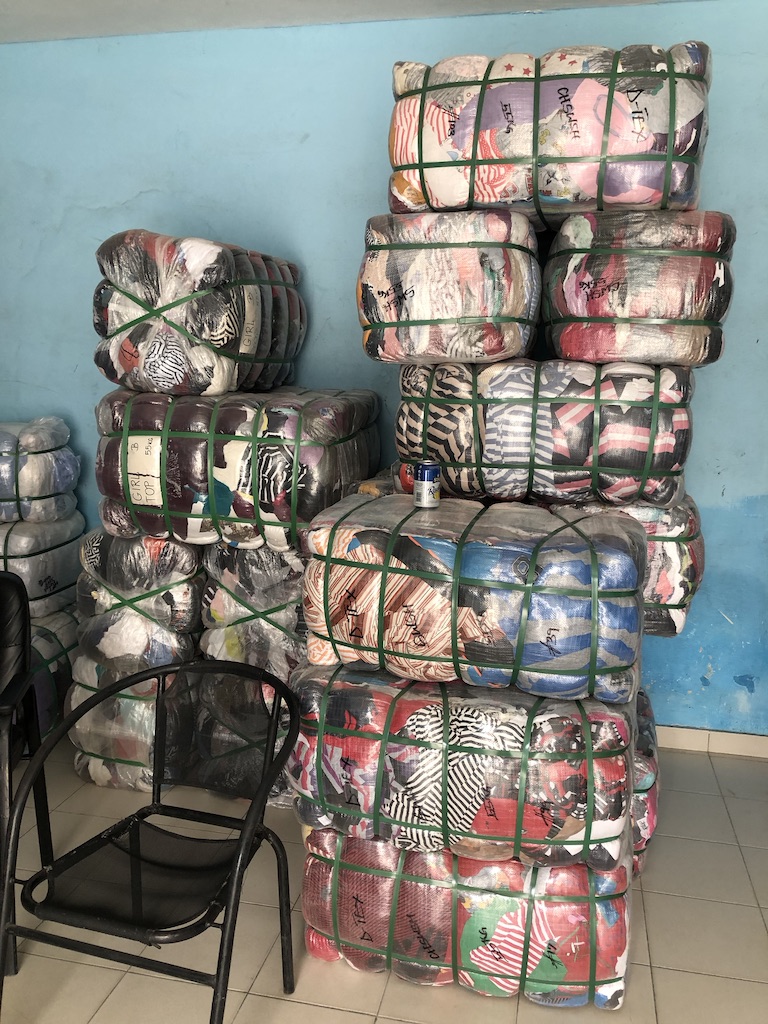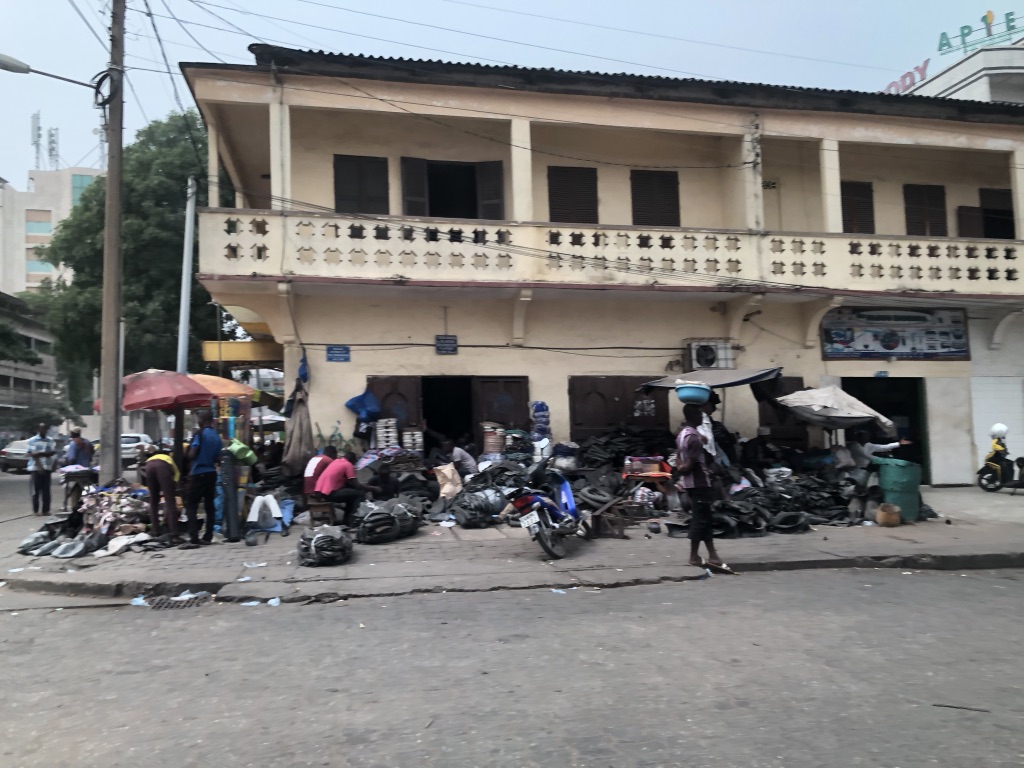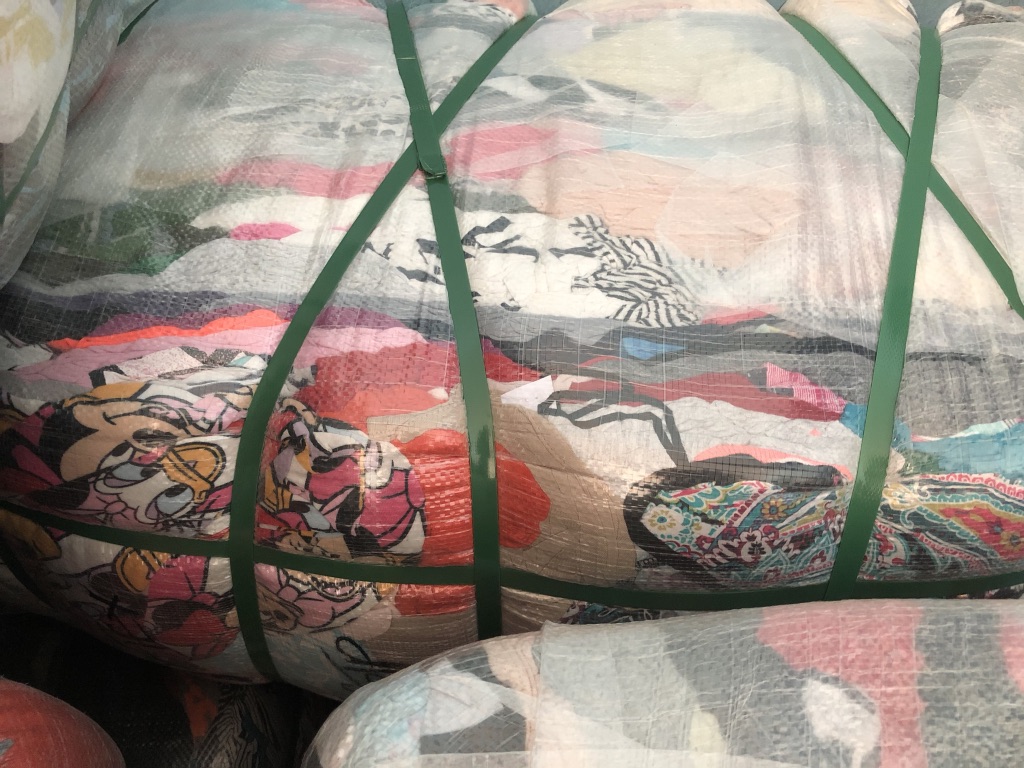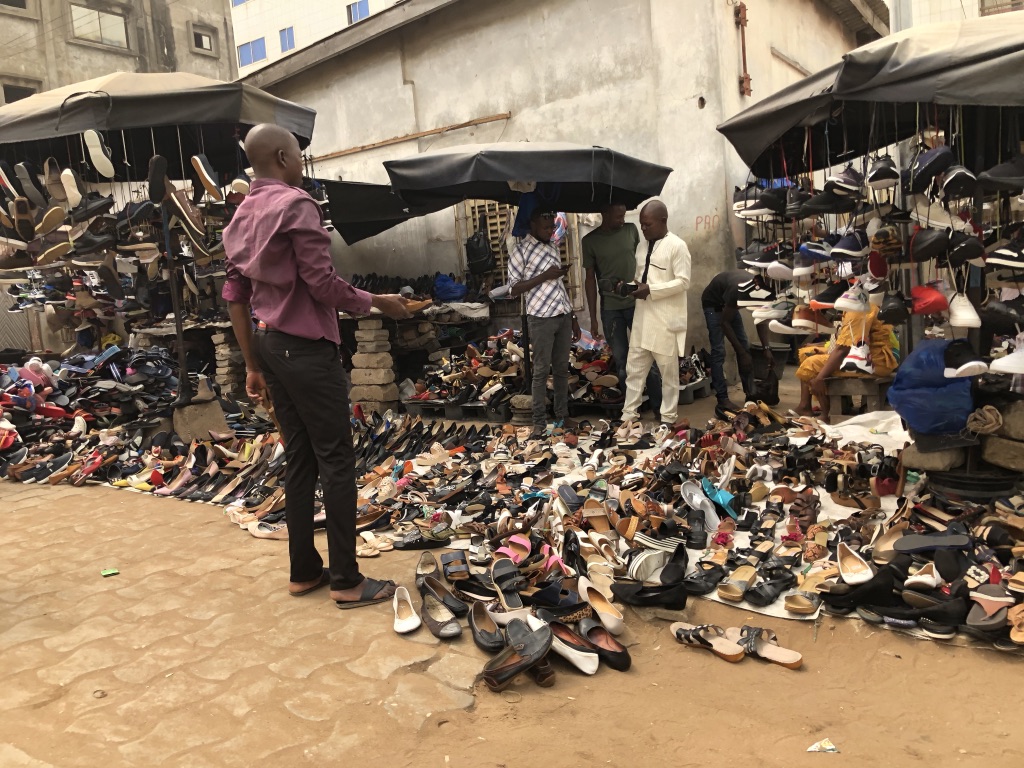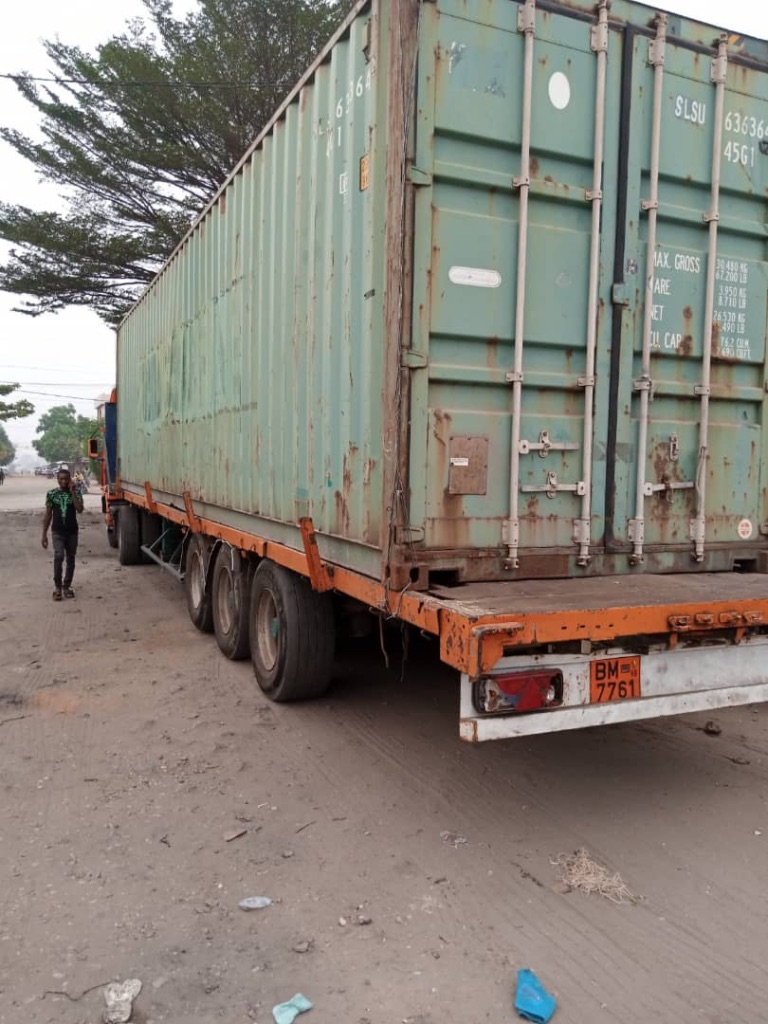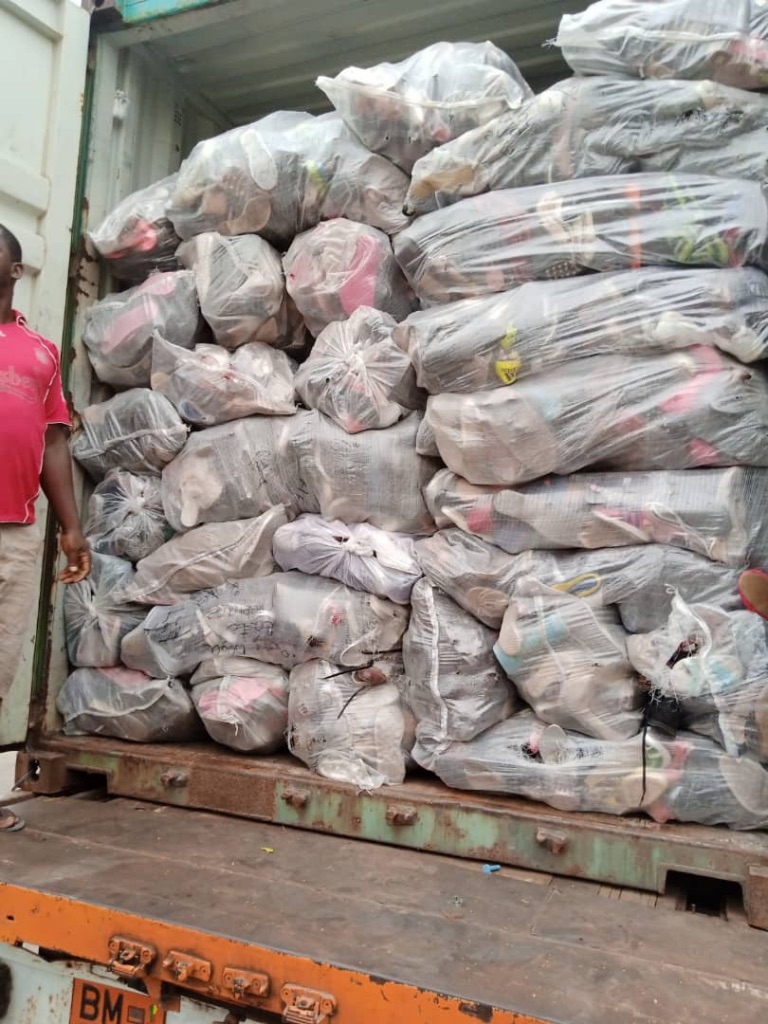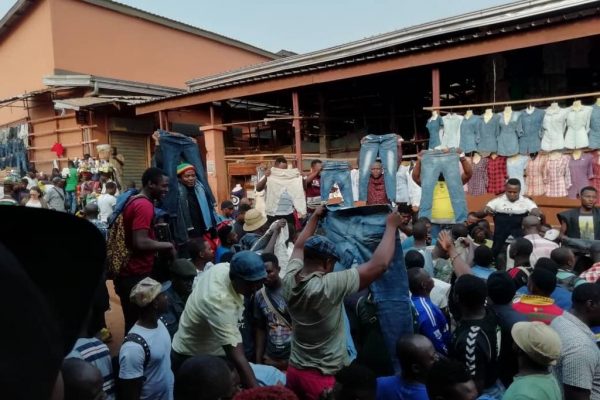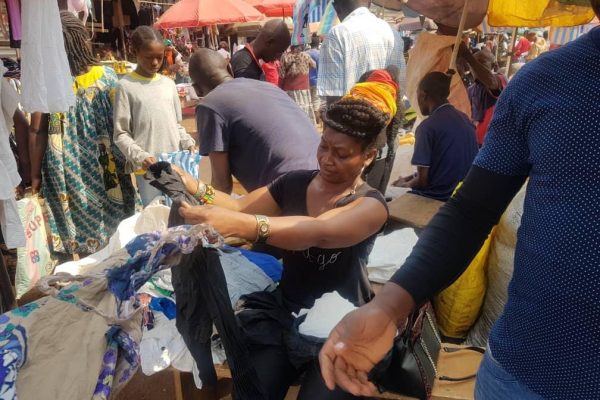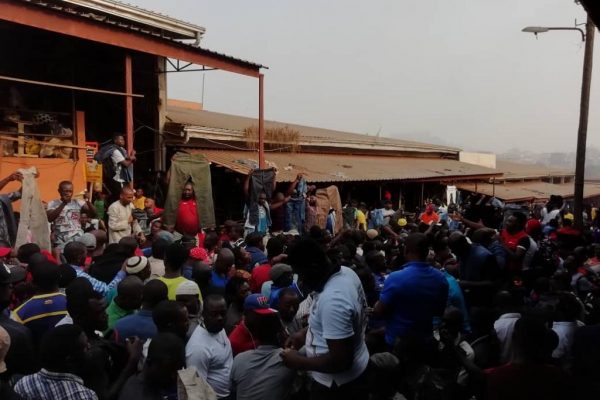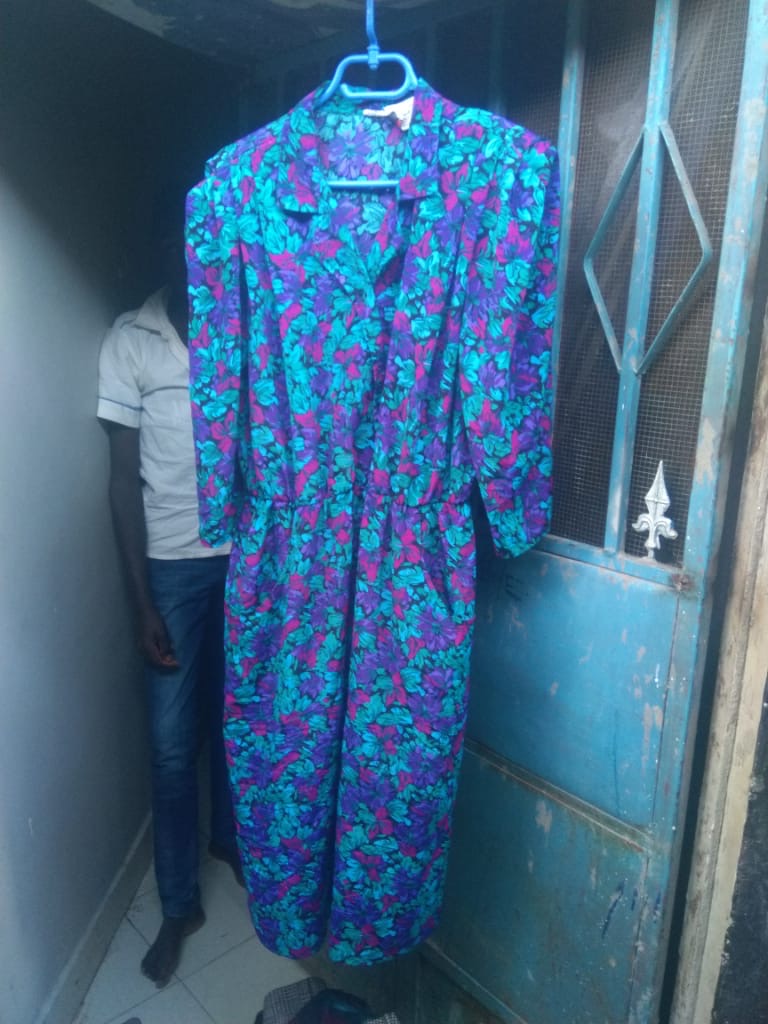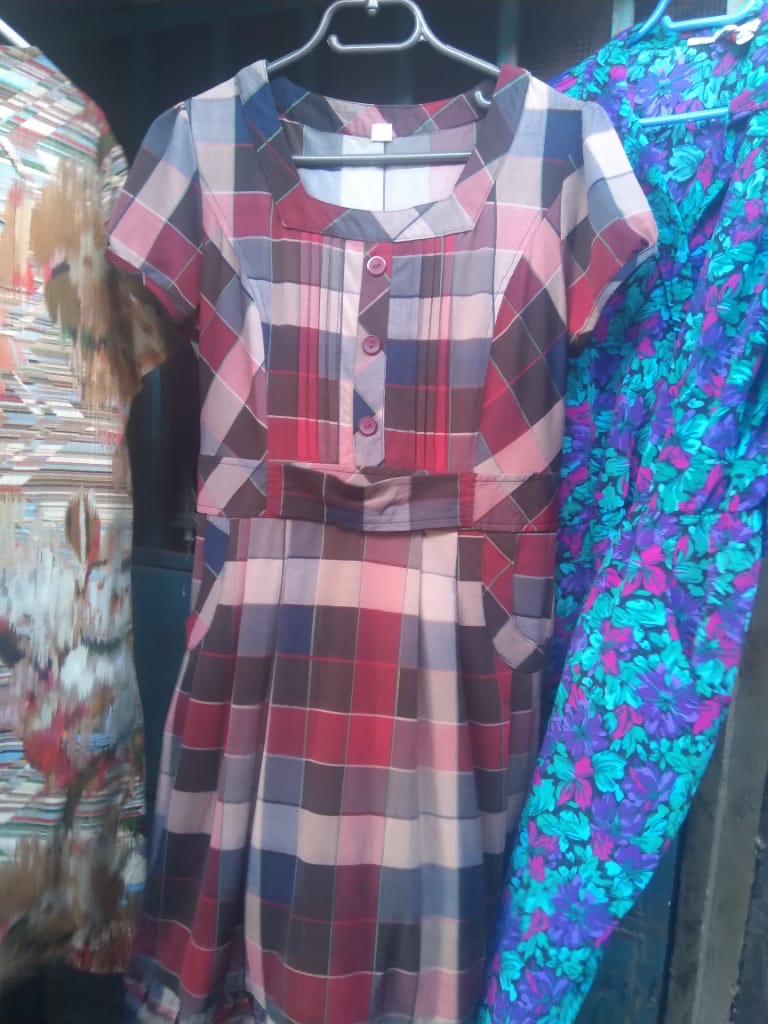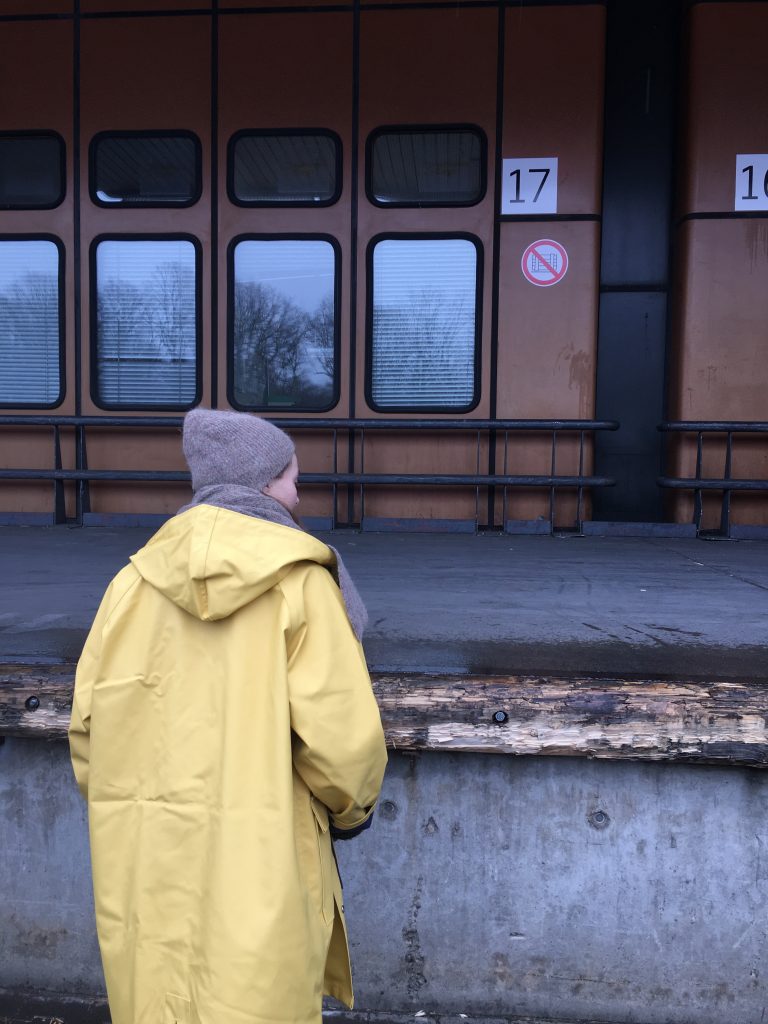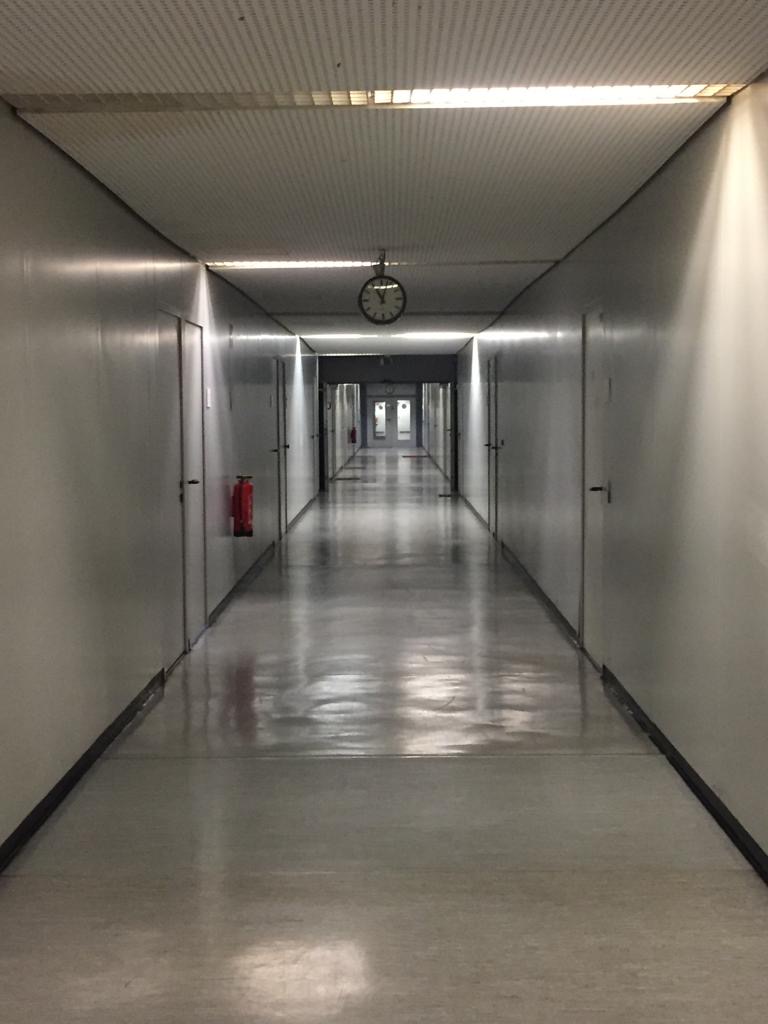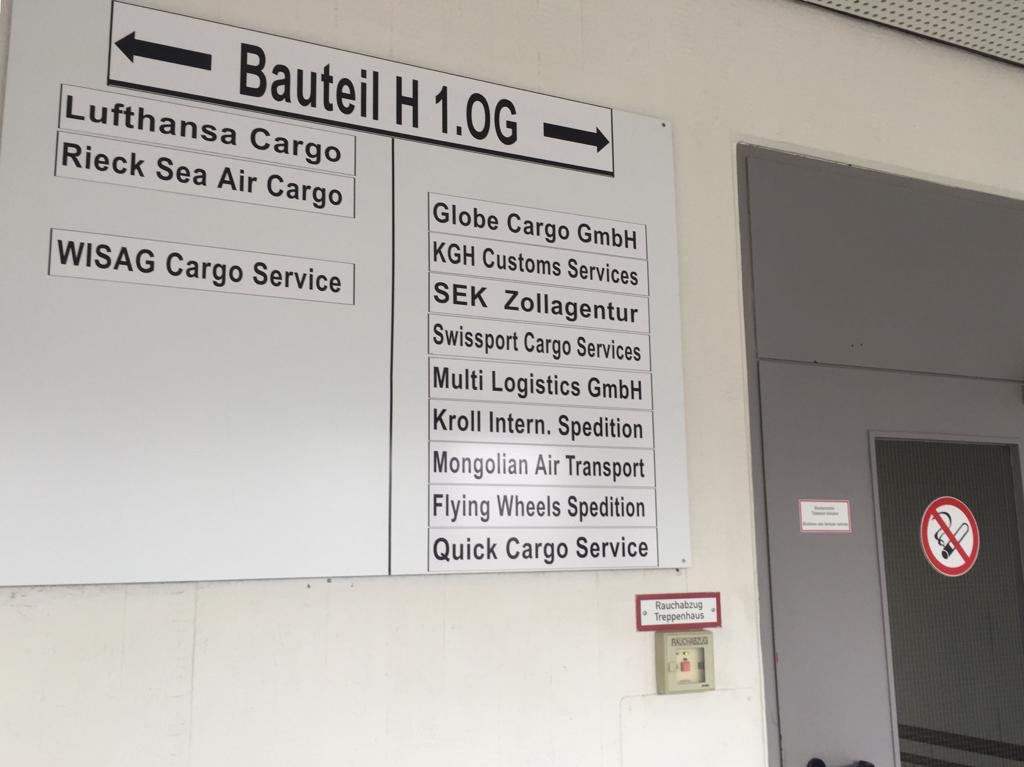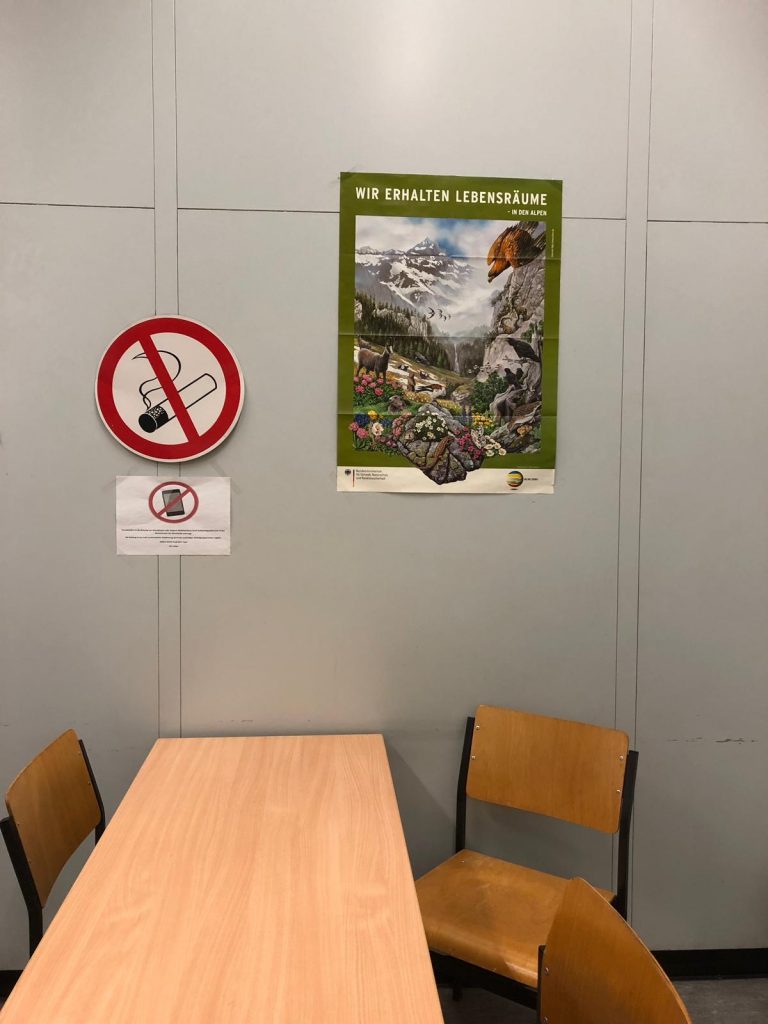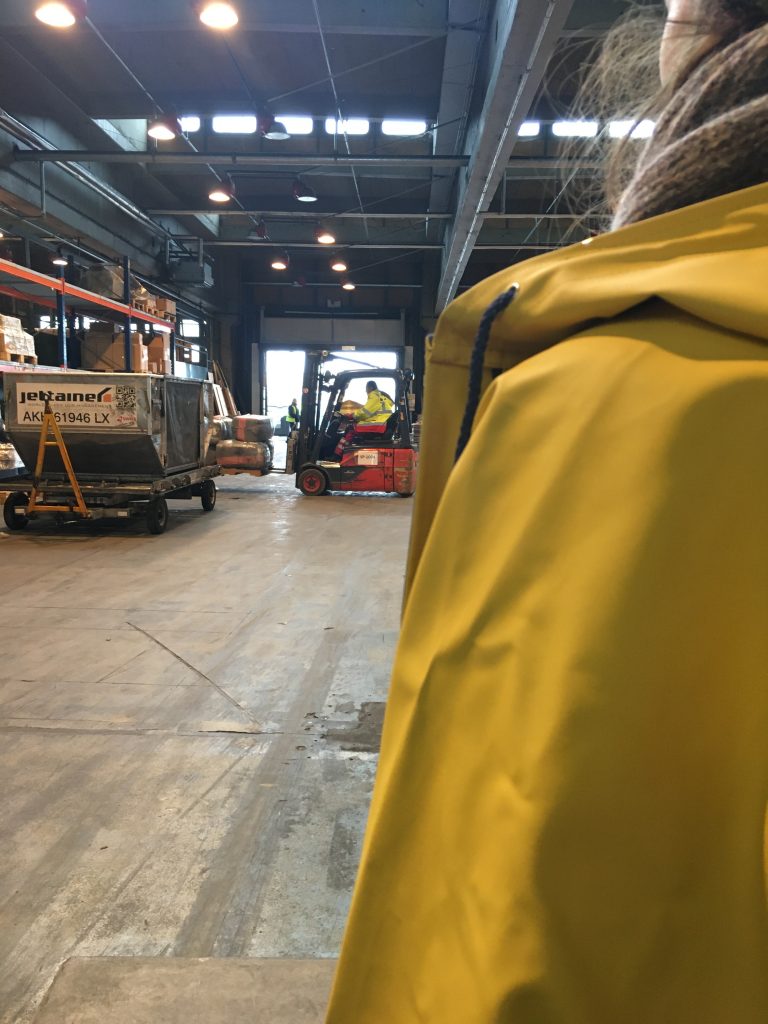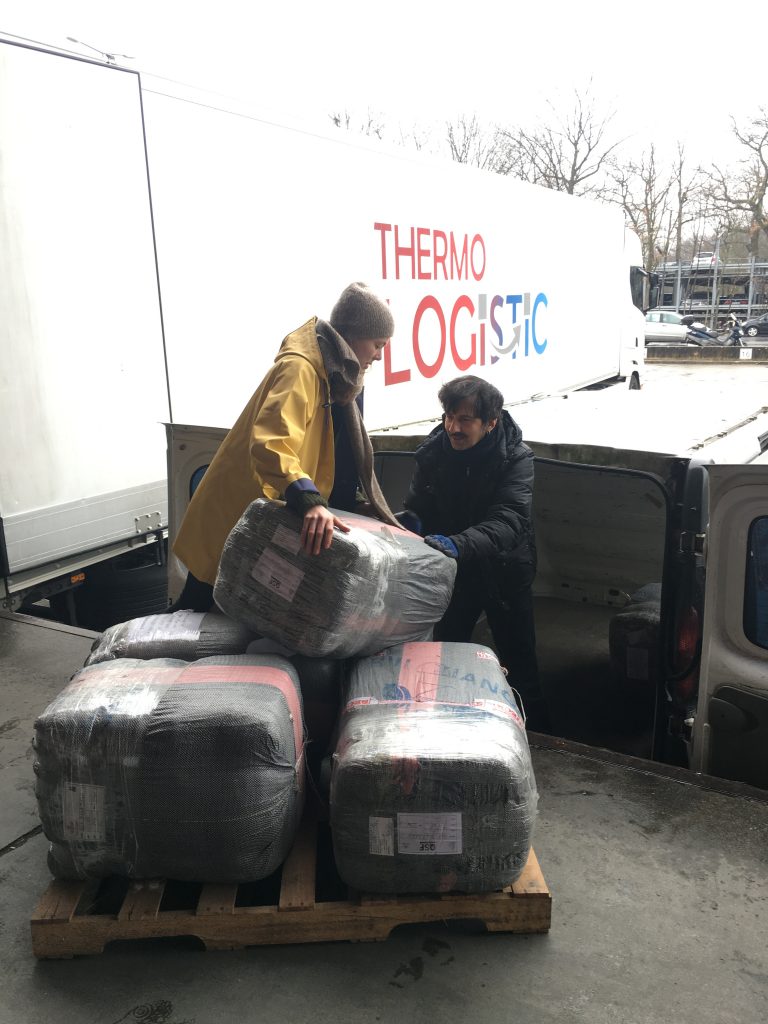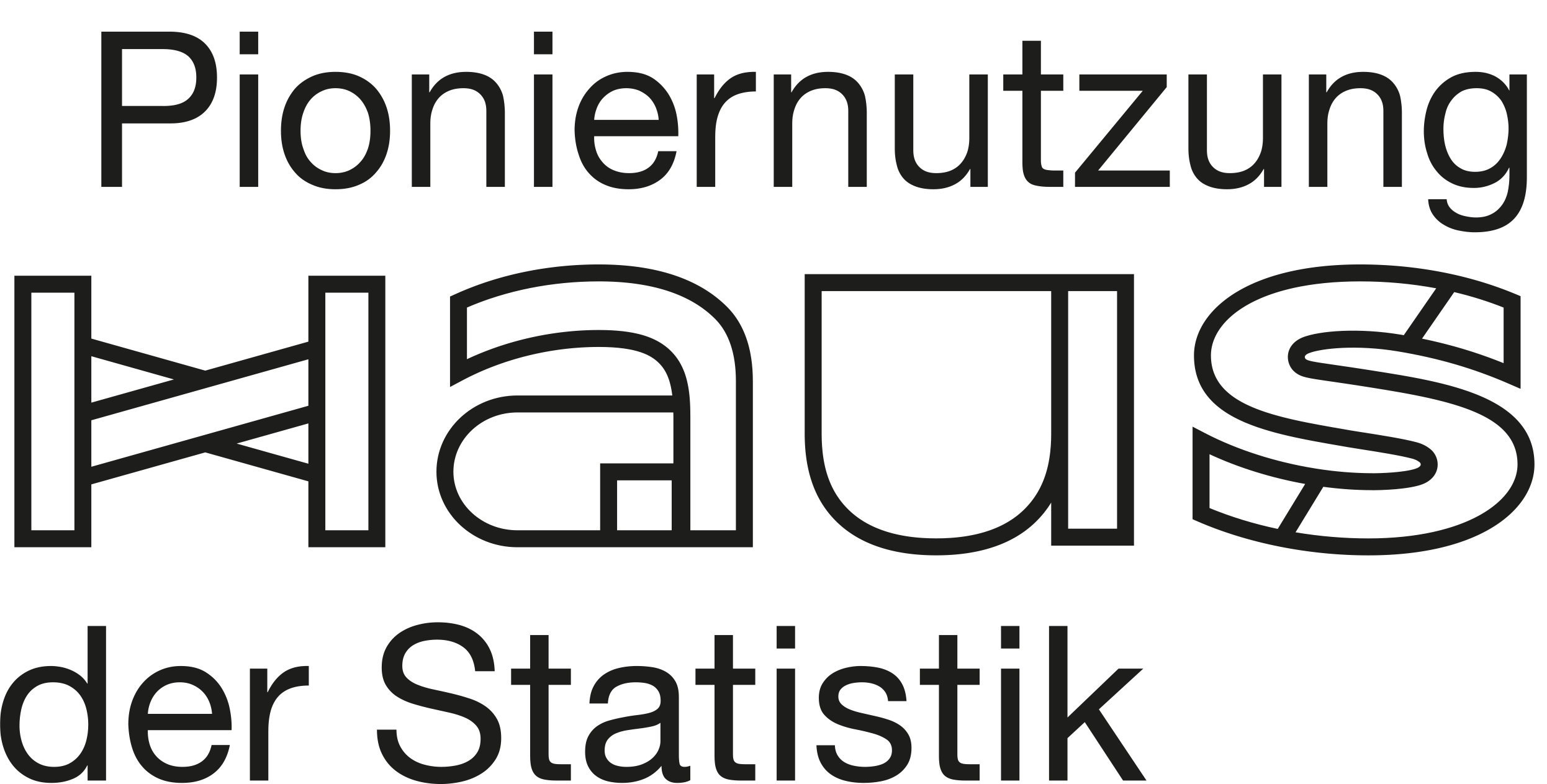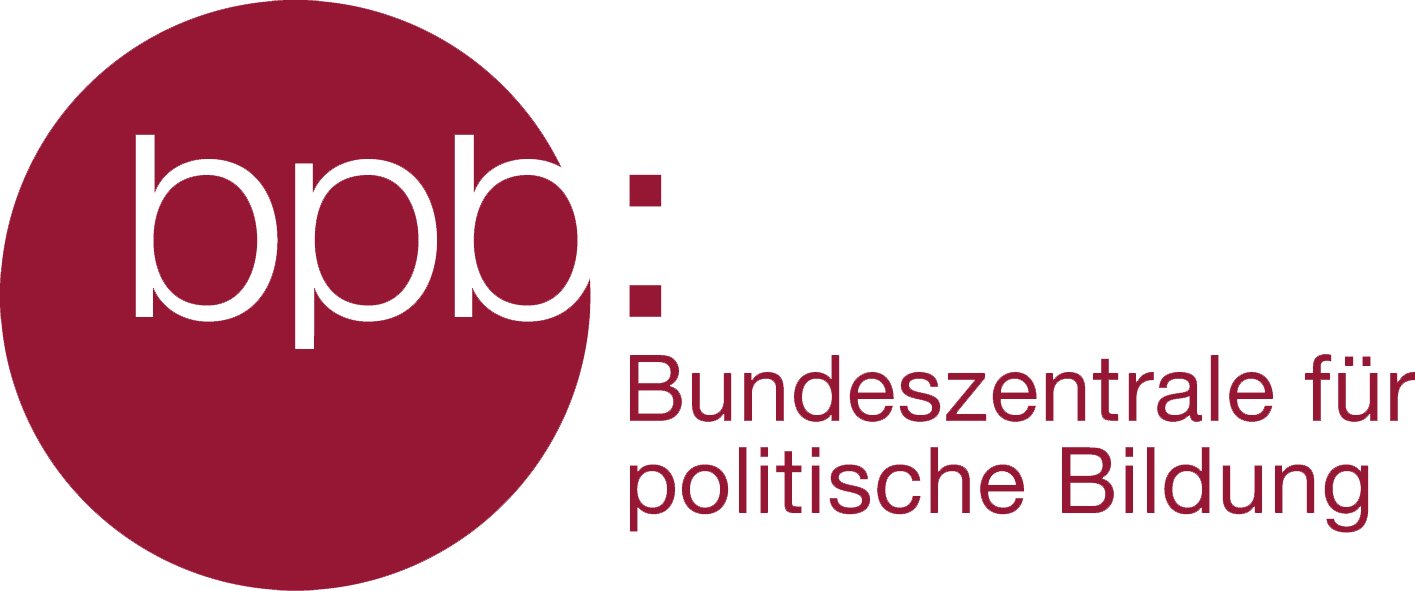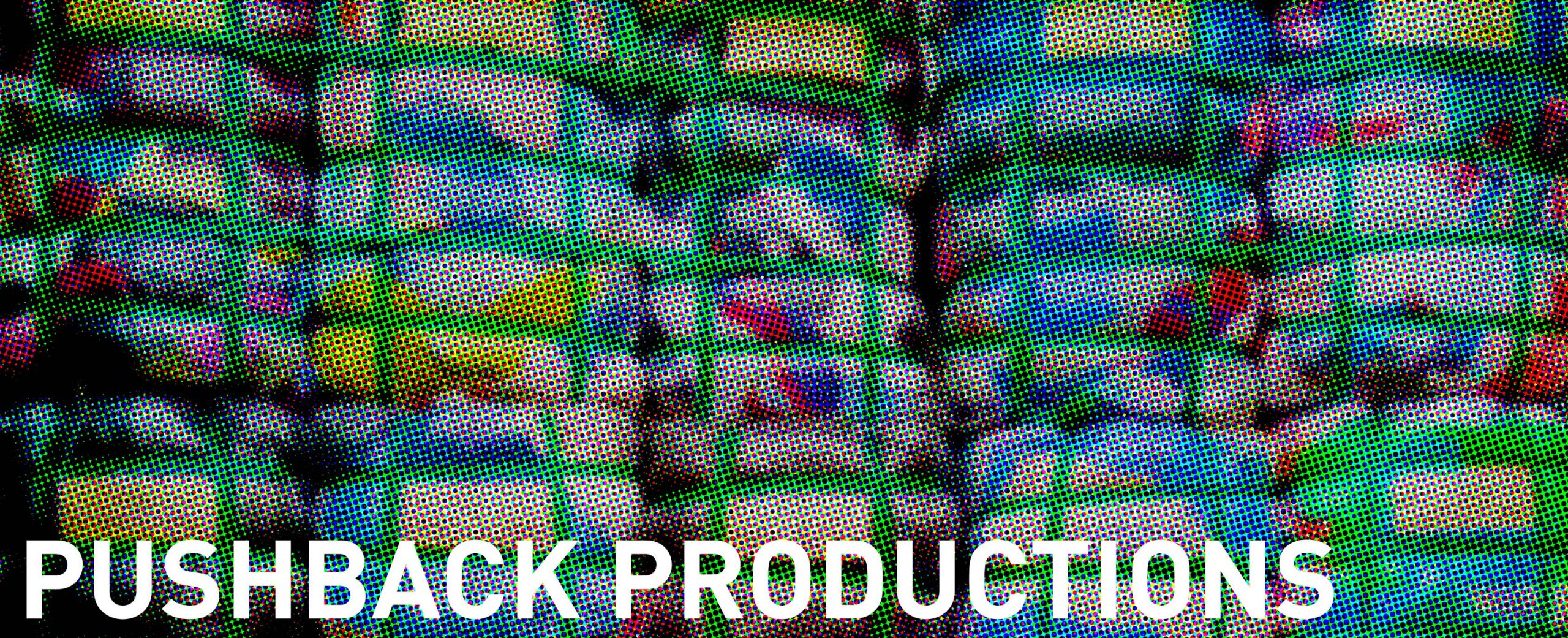
In our ‘PUSHBACK PRODUCTIONS’ campaign, we focused on the post-colonial presence of Germany and associated neocolonial practices. The example of the global textile trade shows that goods move more freely than people: textiles are shipped several times during the production process before they even reach the European market and eventually end up in our wardrobes. If we then dispose of them in used clothing containers, at best for charitable purposes, a large amount of them are shipped to countries in the south, where the clothing loads cause existential hardships among textile producers and retailers.
Europe sends huge amounts of used clothes (waste) to Africa, at the same time as pushbacks are organised for the refugee boats on the Mediterranean.
We want to draw attention to the social and political dimension of production and consumption and to examine the political and social implications of migration. With partners in Benin, Kenya and Cameroon, we were trying to reverse the roles and instead organise pushbacks of European waste back to Europe. At the core of our creative campaign, we have intercepted, repackaged and sent half a ton of used clothing back to Berlin, which had previously been shipped from Europe to Africa. Re-import: We are driving the absurdity of the system one revolution further and creating a concrete image, one that is mirrored and turned on its head, of how exploitative colonial structures have literally kept afloat to this day.
The ‘PUSHBACK PRODUCTIONS’ campaign format is part of our ‘BERLIN / MONUMENT VALLEY’ program – artistic and experimental history workshops for solidaric memory culture, and has been continued as ‘CANDY FACTORY’ (see below).
Second hand cloths became the symbolic material for the invention of a CANDY MACHINE – a magic machine installation, that fules on different kinds of labor, exploitation and energy. A rattling machine for the saccharification of old clothes that have been sent back from Africa. Funded by Fonds Soziokultur.
Artistic direction (installation and film): Matze Görig
In a PUSHBACK research group, we took care of the re-imported textiles (see below) and set up a workshop in the ‚Haus der Statistik‘ at Berlin Alexanderplatz.
The clothes are at the center of the artistic experiments: plaster casts, textile columns, sugar sculptures and the beginning of a POWER machine! Our designs and constructions are guided by our questions: Why are borders more permeable to goods than to people? When does a body become part of a machine? Under what conditions do people work? How do things gain value? What does economic exploitation mean and where does it come from?
In the port city of Cotonou (Benin), Abdel Amine Mohammed was on the Missèbo market for ‘PUSHBACK PRODUCTIONS’ and had collected some pictures, impressions and voices. From there, the first major pushback on used clothes began for Berlin.Abdel Amine Mohammed is also a source for our research, to which he contributes an article (in German) on the trade in second-hand clothing in Benin, as well as its economic framework and implications: Venus de Frances – k(eine) Lösung für Bénins Textilbedarf
In Cameroon, Alima Pélagie and Valery Ebouele were on the trail for second-hand clothes on our behalf and, among other things, visited auctions where western goods were sold on to the next dealers in line.
Our former colleague Lawrence Mwangi Wanjiku runs a youth art school in Lunga Lunga in Kenya. Not far from the district there is also a gigantic used clothing market that not only collects textile goods from all over the world, but also jumps through time into past fashion styles.
The first big ‘PUSHBACK’ came with Royal Air Maroc from Benin via Casablanca to Berlin Tegel. Despite previous research, it was not easy to receive the five tightly packed bundles, perhaps because of our inexperience in customs matters. As we had to learn, there are charges for the re-importation of “waste”.
Partner:
Funded by:
Our initiative stayed on the ball and achieved the CANDY FACTORY. Supported by the Funds for Socioculture!

